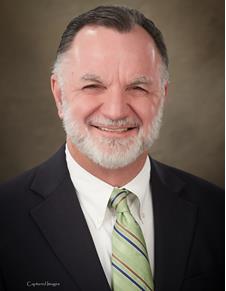This last installment of my analysis as to why rural America is shrinking has to do with the growing cultural trend towards a preference for entertainment experiences and the electronic filter of relationships through social media. The evaluation is more experiential than it is statistical, but certainly current lifestyle trends lend themselves more toward urban living than the traditional rural experience.
Case in point, my fondest memories from my youth are of sitting on the front porch of my grandparent’s home overlooking the bandstand in the center of the town square in a farm community of 1,300 people. We shucked corn, snapped beans, hulled peas, and cleaned fish while we listened to the St. Louis Cardinal on the radio. My most magical summer was the “Phold of 1964,” the year the Phillies collapsed in the last two weeks of the baseball season and were overtaken by my red-hot Cardinals. It was an experience that gelled families and communities all over the Midwest.
My seven city-raised children would blanch at the prospect of spending a summer of listening to the radio and in idle conversations on the topics of religion, politics, world and local news, and sports. My eleven grandchildren would ask about the strength of the WiFi signal on the porch, and tolerate the scene until allowed access to their gaming console again. Do I sound like I have lived during 70 decades?
Most of us can identify with this great generational divide on one side or the other. Whether social media, gaming, exotic vacations, movies, bingeing TV shows, etc. are more healthy and constructive than front-porch-sittin’ remains to be seen, but one thing is certain: the change in culture has seriously impacted the perceived value of small communities. The “brain-drain” of our best and brightest to major universities and big jobs in big cities continues, with no end in sight.
What can, or should, rural communities do about this megatrend which is contributing significantly to our population loss? We certainly cannot compete with the entertainment and shopping venues of major metropolitan areas, and we would be foolish to try to a large degree. We would have a difficult time recruiting Fortune 500 companies to our county in order to offer the next generation world-class job options. We should do all we can to make high-speed Internet access broadly available across the county.
I believe we need to be who we are: a place that offers time for community and contemplation; a place that has the advantages of nature and the social and recreational aspects that come with it; a place that has history and played an important role in one of the most critical periods of American history; a place with time to love and to be loved. Sounds like heaven to me.
We need to be the best Bourbon County we can be. We need to lean into each other, support each other, and cultivate county-wide trust together. Someday, our culture will again want what we have, which I think represents the best of human nature. In the meantime, we wait, we work, we pray, we relate, and we build…together.

A friend of mine lives in a somewhat rural area and decided they needed high speed internet. After getting “buy in” from the community he contacted several providers, made arrangements for the best deal, and ramrodded the installation process. This was just before the pandemic. When things shut down, he was kind of a hero for having high speed internet in place for everyone to use. That was just one person in action to implement something that will be used for years by the community.
“The Cards have more in ’64”, the words of the immoral Harry Cary and Gregg, you hit a .home run with the “brain drain theory, but tell us how to stop it.
Western Insurance was started in Fort Scott by Oscar Rice as an automobile insurance company in 1910. Henry Ford had started producing the Model T in 1908. Paved roads were almost nonexistent. Oscar Rice himself did not own an automobile but somehow had the foresight to guess that the automobile would take off and there would be a need for insurance. What Fort Scott needs is a few “Oscar Rice thinkers” to get the ball rolling.
Pete, thank you for your comments. I do not know how to stop Brain Drain. The best we can do is slow it down. I like what our Chamber is doing through the mentoring program which connects our students to local employers and community organizations. My instincts are that we need to make a stronger connection between our youth and local organizational structures.
Brain Drain can and is being reversed, at least in some rural areas. For generations, parents and grandparents have told our youth to go make a better life somewhere else. We must stop telling our youth to leave and tell them what a great life we have in rural Kansas. Remind them of the benefits of being near family. Provide amenities that they value in the big city, right here at home. They can easily reach other attractions within a couple of hours. We need to think about and market Rural America differently, starting with our young people. Let’s talk more about Brain Gain.